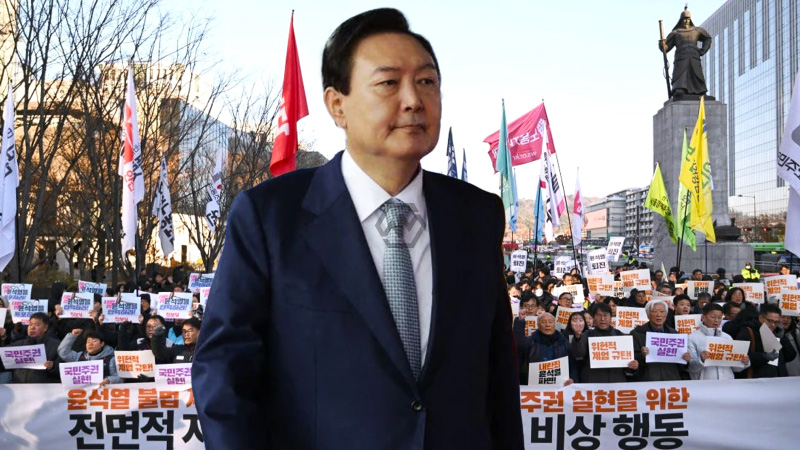- Yoon Suk-yeol was impeached over his December 2024 martial law declaration.
- Pro- and anti-Yoon protests erupted across Seoul following the court ruling.
- Snap presidential elections are set for June, with Lee Jae-myung emerging as a frontrunner.
The impeachment of former President Yoon Suk-yeol marks a dramatic turn in South Korean politics. The Constitutional Court unanimously ruled that his December martial law attempt posed a severe threat to democratic order.
Yoon, who had presented himself as a guardian against North Korean threats and “anti-state forces,” cultivated strong backing from far-right groups, religious leaders, and online influencers.
Fractured Democracy: South Korea Faces Reckoning After Yoon’s Ouster
The political fallout from Yoon Suk-yeol’s impeachment has brought South Korea’s democratic institutions into sharp focus. The Constitutional Court’s rare and unanimous decision underscores the gravity of his December 3 actions, when he attempted to implement martial law under the justification of national security. Legal scholars argue this was an unconstitutional overreach of executive power.
Street protests over the weekend laid bare a deeply divided nation. Supporters of Yoon waved flags and chanted slogans, accusing the court of undermining democracy itself. Many young conservatives expressed fear about the country’s political direction, especially with the rise of opposition leader Lee Jae-myung.
Yoon’s rise and fall highlight how modern political influence in South Korea is increasingly shaped by digital media and ideological echo chambers. Right-wing YouTubers and extreme religious groups mobilized support for Yoon through online campaigns, often spreading false narratives about threats to national security.
Meanwhile, the upcoming snap elections present a critical crossroads for South Korea. With Lee Jae-myung’s conciliatory stance toward North Korea gaining ground, voters must now choose between two starkly different paths. The outcome will likely define South Korea’s approach to regional diplomacy, civil liberties, and institutional integrity for years to come.
South Korea stands at a political crossroads, its democracy tested by unprecedented polarization. The road to national healing now depends on voters‘ choices in the June election.
“The Constitutional Court’s decision destroyed our country’s free democracy.” – Yang Joo-young, 26, pro-Yoon protester in Seoul



